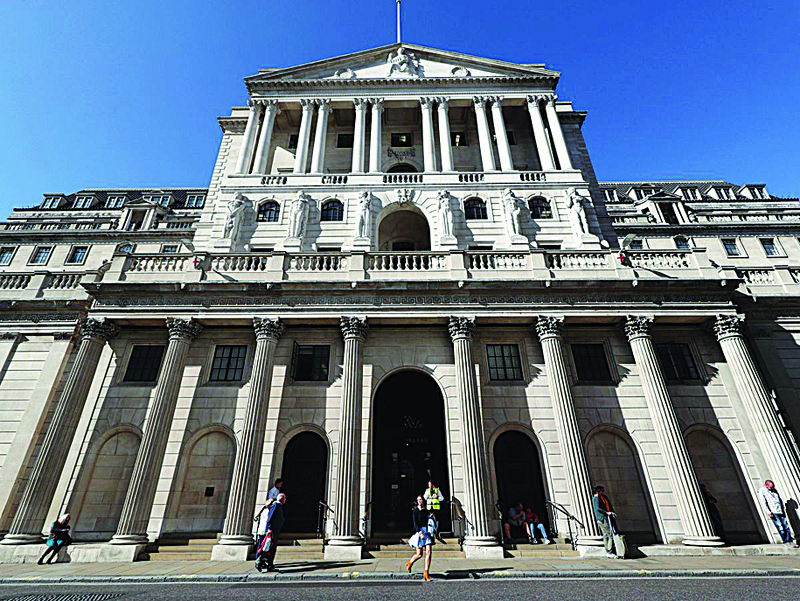 LONDON: The Bank of England will likely hold its interest rates at their current record lows tomorrow as it weighs runaway inflation against the possible economic impact of the Omicron coronavirus variant.
LONDON: The Bank of England will likely hold its interest rates at their current record lows tomorrow as it weighs runaway inflation against the possible economic impact of the Omicron coronavirus variant.LONDON: The Bank of England will likely hold its interest rates at their current record lows tomorrow as it weighs runaway inflation against the possible economic impact of the Omicron coronavirus variant. Initially, analysts had expected the BoE to raise its key rate from the current level of 0.1 percent in a bid to rein in inflation, which surging energy costs have pushed well above target.
However, Omicron, which emerged late last month, has forced the UK government to re-impose coronavirus restrictions and sparked fresh economic turmoil which most analysts believe will persuade the BoE to hold its fire. UK inflation rocketed to a near decade-high of 4.2 percent in October, and is set to top 5.0 percent in April according to a BoE official.
Central banks normally raise borrowing costs to dampen inflation, which is running beyond the BoE's target of 2.0 percent. Prime Minister Boris Johnson has, however, warned of a looming "tidal wave" of Omicron that could overwhelm the state-run National Health Service (NHS). Policymakers will also be mindful of upbeat UK unemployment data and upcoming inflation numbers for November today. Unemployment has fallen again, despite the end of a government scheme to keep millions of private-sector workers in their roles during the pandemic.
'Significant degree' of uncertainty
"Without the Omicron variant, today's strong labor market report could easily have been enough to rubber stamp a December rate increase," said Martin Beck, economic adviser to financial researchers the EY ITEM Club. "But the... significant degree of uncertainty around Omicron suggests the Bank of England won't move on Thursday."
Beck also noted that Omicron had sent oil and other commodity prices plunging, taking the sting out of fears about elevated global inflation. The UK economy was already struggling prior to the arrival of Omicron, growing by an anemic 0.1 percent in October from 0.6 percent in September.
"The government's recently-imposed 'Plan B' COVID-19 restrictions mean there is a good chance that the economy contracted in December," said Capital Economics economist, Ruth Gregory. "If the pressure on the NHS increases, restrictions might be tightened further, implying substantial downside risks to the first quarter of next year, too. "Against this backdrop, we no longer expect the Bank of England to raise interest rates from 0.1 percent."
However, other analysts disagree. "News of the Omicron variant has changed little on the medium-term economic outlook," said Deutsche Bank's Sanjay Raja, who is forecasting a hike to 0.25 percent. "The labor market remains as tight as it has been in recent memory, in spite of the furlough scheme ending on September 30. And inflation continues to outpace staff forecasts."
Britain this week tightened virus restrictions in England as Omicron cases surge, and issued guidance to work from home and mandatory COVID passes. Johnson has also brought forward a target to give over-18s a booster jab by one month to the end of December. The government also recently rolled out new travel curbs to try and prevent transmission of the variant. - AFP









